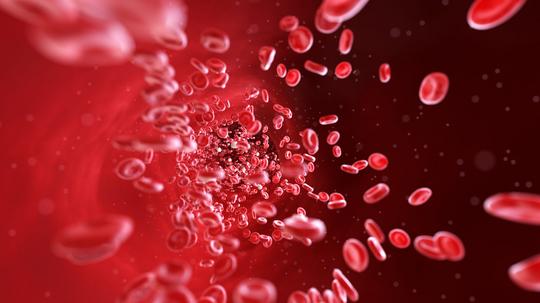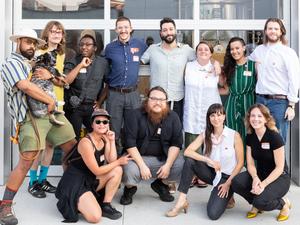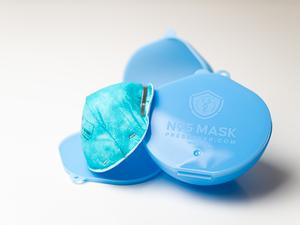
Rubius Therapeutics is a publicly traded, clinical-stage biotech company on a mission to genetically engineer red blood cells to create an entirely new class of cellular medicines in order to treat cancer and other autoimmune diseases.
This new class of cellular therapies, which could transform how diseases are treated, is called Red Cell Therapeutics (RCTs). Rubius, which spun out of Cambridge, Massachusetts-based life sciences firm Flagship Pioneering, builds on the research of Professors Harvey Lodish and Hidde Ploegh of the Whitehead Institute for Biomedical Research at MIT.
Since its inception in 2013, Rubius has grown to approximately 200 employees. The company is based in Cambridge but in 2018 purchased a 135,000-square-foot manufacturing facility in Smithfield, Rhode Island. That year, it also made its stock market debut, raising $241 million in an IPO.
"Rhode Island’s biotech and life sciences ecosystem is growing, and the further growth potential is promising," Jaimy Mauricio, a finance site controller at Rubius, said. "As we’ve shown, amazing talent is available to build a strong team and operate a biotech facility in Rhode Island."
Rhode Island Inno caught up with Mauricio and Tyson Fetzer, Rubius’ head of manufacturing in Smithfield, to discuss what the company is up to, its Rhode Island operations and the Rhode Island biotech ecosystem.
What is the main therapy or treatment that Rubius Therapeutics is trying to achieve?
Fetzer: Red Cell Therapeutics are engineered to express biotherapeutic proteins within or on their cell surface to create highly selective, potent and allogeneic cellular medicines aimed at treating a range of diseases. Rubius is advancing a broad pipeline of RCT product candidates. Our current programs are investigating applications across multiple therapeutic areas—starting with cancer and autoimmune diseases. We are currently enrolling patients with advanced solid tumors in a Phase 1 of 2 clinical trial of RTX-240, which will be administered to acute myeloid leukemia patients. We also plan to submit an investigational new drug application for other therapies by the end of the year.
RCT product candidates can be engineered to express combinations of co-stimulatory molecules and cytokines on their cell surface to directly engage both the adaptive immune system and the innate immune system. By stimulating both powerful arms of the immune system, RCTs may be better able to destroy cancer cells to improve anti-tumor activity and overcome resistance to immunotherapy. We believe RCTs will have broad therapeutic application across a range of both solid tumors and hematological cancers. Using RCTs, we are also aiming to retrain the immune system with restoration or induction of immune tolerance to provide more effective treatments—potentially even cures—for certain autoimmune diseases such as Type I diabetes.
In 2018, Rubius purchased a 135,000-square-foot manufacturing facility located in Smithfield, Rhode Island. Is this facility fully up and running? Why did you choose Rhode Island?
Fetzer: The acquisition of our Rhode Island manufacturing facility was a critical step toward making the promise of Red Cell Therapeutics a reality. We believe that by owning our manufacturing capabilities and controlling our supply chain, we will be prepared to scale up manufacturing of clinical and potentially commercial supply of our novel therapies. The strong partnership with Gov. Raimondo and the Rhode Island Commerce Corporation was an important part of the decision when choosing the Smithfield, Rhode Island site. The talent pool in the region also allowed us to work towards building a sustainable and high-performing team and together work towards bringing important new medicines to patients.
The facility contains multiple manufacturing suites, which enables Rubius to conduct its manufacturing operations in a current good manufacturing practice (cGMP) compliant manner for clinical supply and, if approved, for the commercial supply of RCT product candidates. We are happy to say that our fully-owned manufacturing site in Rhode Island is operational, with the start of the facility completed nine months ahead of the original target date and the product produced from the Smithfield facility is now being used to dose patients in our first-ever cancer clinical trial. At our site, we have approximately 70 employees focused on manufacturing, testing, and releasing our product for use in the clinic.
Recently, Rubius announced the dosing of its first patient for phase 1 of 2 of its oncology therapy RTX-240. How big of an accomplishment is this and how close does this put you toward your overall goal of creating an anti-tumor immune response?
Mauricio: Our vision is to create life-changing, allogeneic cellular therapies for patients with severe diseases. The dosing of our first patient in May of this year for the hase 1 of 2 of our oncology therapy RTX-240 is a significant step toward achieving that vision, so it is an exciting milestone for Rubius. RTX-240 is engineered to broadly stimulate the immune system by activating and expanding both natural killer cells and T cells to generate a potent anti-tumor response. The clinical development will increase our understanding of RTX-240’s potential to help cancer patients.
Having a presence in both Cambridge, Massachusetts and Rhode Island, what do you think of the Ocean State’s startup and biotech scene? What do you like and what could be improved?
Mauricio: It’s well known that Boston is one of the most prolific biotech-pharma hubs in the world with hundreds of companies located there, and we’re thrilled to be in the center of that hub with our headquarters located right in Cambridge. Meanwhile, Rhode Island’s biotech and life sciences ecosystem is growing, and the further growth potential is promising. As we’ve shown, amazing talent is available to build a strong team and operate a biotech facility in Rhode Island. When it comes to real estate and infrastructure, Rhode Island offers an attractive cost advantage compared to Boston, which can help fuel that growth.
The tremendous work by the teams at Rhode Island Bio and Rhode Island Commerce contribute to the increasing biotech presence, as well as awareness and opportunities in the state. We encourage Rhode Island Bio and Rhode Island Commerce to continue their efforts toward driving the growth of this ecosystem by partnering with and attracting companies like Rubius to invest, build and start up in Rhode Island. The wonderful Wexford Science & Technology Center recently built and opened in Providence demonstrates the state’s commitment to developing innovation and the community to bring research, institutions, and businesses together, which should also help grow the life sciences and biotech scene in Rhode Island.








